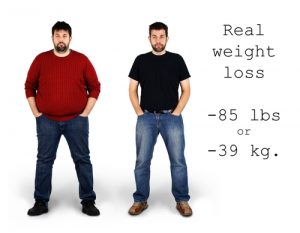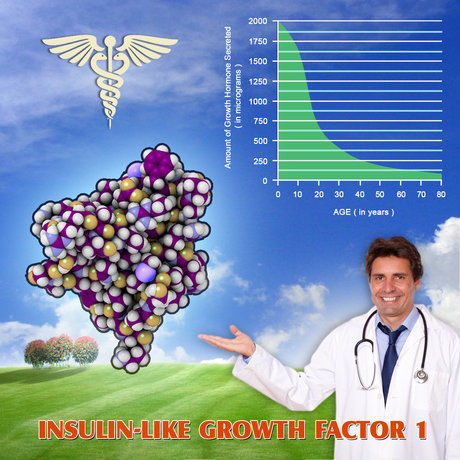Video Link: https://vimeo.com/291647688
Video Download: Eating Right On A Low Glycemic Diet
Video Stream: Eating Right On A Low Glycemic Diet
Whether you are diabetic or healthy, your blood sugar is something that you should remain concerned about.
There's a reason why your blood sugar spikes when you eat foods that are high in refined carbohydrates and sugars—it's because your body is trying to adequately respond to an influx of empty calories that it's not physiologically capable of handling with frequency.
The human body is designed to break down complex foods into nutrients that the body can use.
The Dangers of Processed Carbohydrates
 Processed sugars and carbs are a problem because they've already been mostly reduced down to their purest state.
Processed sugars and carbs are a problem because they've already been mostly reduced down to their purest state.
When you eat carbohydrates like whole grains, the body gets a continuous drip of glucose, which prevents blood sugar levels from spiking.
Also, our bodies utilize foods with a lot of fiber to assist in the digestive process and help us feel full. One of the reasons why we feel so tired and exhausted after a big meal is because changes in blood sugar lead to feelings of fatigue and lack of energy.
The best way to feel better after you eat and to ward off insulin-resistance and diabetes is to be aware of the Glycemic Index of the carb-based foods that you eat. You can even use the Glycemic Index to help you lose weight.
By focusing on foods with a low Glycemic Index, you set your attention on foods that have a higher nutrient content, and also eat foods that fill you up more quickly.
While it is possible to lose weight and stay healthy by severely restricting carbs, the best  way to lose weight responsibly is to limit carbohydrates, but continue to eat them.
way to lose weight responsibly is to limit carbohydrates, but continue to eat them.
Carbohydrates are incredibly important because they provide the body with instant energy, but you only need so much of that power available to you at any one time.
For patients that are diabetic, a Low-Glycemic Diet is essential to preserving health and wellness and preventing Diabetic Shock and other unhealthy outcomes, but the same advice can help individuals that are looking just to eat a healthy diet.
What Is the Glycemic Index?
The Glycemic Index is a clinically designed system that was invented to help people understand the effect that foods that they eat have on their blood sugar levels.
This method is essential for diabetics but is useful for anyone looking to improve their eating habits.
Among the three critical food categories (carbohydrates, proteins, and fats), only carbs are considered in this system because proteins and fats do not affect blood sugar.
 Concerning the Glycemic Index, the lower the value, the healthier that it is for you to eat.
Concerning the Glycemic Index, the lower the value, the healthier that it is for you to eat.
Complex carbs, like whole-wheat bread and other whole grains, have a lower GI Cost, whereas white bread and white rice are closer to 100 because they are purely refined.
Foods are generally grouped into three categories about the Glycemic Index: Low (1-55), Medium (56-69), and High (70+).
In general, you should be looking to restrict foods with a High Glycemic Index significantly, conscientiously consume foods with a Medium rating, and focus on carbs that are in the Low category.
This may sound daunting, but with a little practice, you can quickly learn which foods are right for you.
Furthermore, many foods have their Glycemic Index rating posted on the label, and many websites freely display such information for those looking to improve their health and their eating habits.
Foods with Complex Carbs and Low Glycemic Index: Low-Starch Vegetables, Fruits, Beans, Nuts, and Whole Grains
Foods with Simple Carbs and a High Glycemic Index: Sweets, Soda, Processed Fruit Drinks, Cookies, Candy, White Bread, White Rice, Potatoes
What Factors Can Affect Glycemic Index?
It's essential to recognize that Glycemic Index values should be considered a rule of thumb.
There are a lot of factors that can change the Glycemic Index. For example, most fruits increase in Glycemic Index as they grow in ripeness and sugar content.
Other foods, like pasta and other starches, have an increased Glycemic Index the longer  that they've been cooked.
that they've been cooked.
Furthermore, foods that have a relatively high Glycemic Index can have less of an impact on blood sugar levels when combined with high-fiber foods or when they are prepared with ingredients that increase the acid or fat content of the meal.
Similarly, when thinking about the Glycemic Index of what you eat, it's essential to consider the entire meal, rather than any individual ingredient.
If you have small portions of foods with a high Glycemic Index paired with foods that diminish the effects of that glycemic load, then you end up with a healthier meal overall.
The Importance of Glycemic Load
Like we said earlier, carbohydrates are still necessary, but they have to be consumed sensibly. Many foods with a high Glycemic Index can still be healthy because they provide an immense amount of nutrients along with their sugar content.
By focusing on foods with high nutrient content in addition to limiting your consumption of foods with a high Glycemic Index, you maximize the value you get out of the foods that you eat, fill up faster, and will ultimately find it easier to control portion size and lose weight.
All carbs will act on your blood sugar, and all calories will eventually be burned or stored. If you gorge on carbohydrates with a Low Glycemic index, you'll still experience ill-effects.
References
Glycemic index diet: What's behind the claims
Contact Us For A Fast And Professional Response

- The Other Aspect of Dieting – Removing Chronic Stressors From Your Life [Last Updated On: February 9th, 2025] [Originally Added On: September 9th, 2020]
- The Flaws of Six Popular Diets [Last Updated On: June 6th, 2025] [Originally Added On: September 20th, 2020]
- Purchase Sermorelin Acetate Injections Online [Last Updated On: February 8th, 2025] [Originally Added On: September 23rd, 2020]
- The Benefits of Intermittent Fasting [Last Updated On: May 16th, 2025] [Originally Added On: October 2nd, 2020]
- Eat Healthier with White Flour Alternatives [Last Updated On: August 26th, 2025] [Originally Added On: October 3rd, 2020]
- Ten Common Contributors to Obesity that Make it Hard to Lose Weight [Last Updated On: March 5th, 2025] [Originally Added On: October 4th, 2020]
- How Can Sermorelin Enhance Your Life? Losing Weight and Battling Premature Aging With Sermorelin [Last Updated On: April 1st, 2025] [Originally Added On: October 5th, 2020]
- Benefits and Risks of HGH Therapy: 2018 Update [Last Updated On: April 15th, 2025] [Originally Added On: October 6th, 2020]
- Have You Heard About the 21st Century Breakthroughs in Hormone Replacement Therapy? [Last Updated On: September 16th, 2025] [Originally Added On: October 7th, 2020]
- The Importance of Omega-3 Fatty Acids [Last Updated On: June 4th, 2025] [Originally Added On: October 8th, 2020]
- The Relationship Among Testosterone, Obesity, and Alzheimer's Disease [Last Updated On: August 25th, 2025] [Originally Added On: October 9th, 2020]
- Major Alzheimer's Risk To Continued Sleep Deprivation [Last Updated On: April 29th, 2025] [Originally Added On: October 10th, 2020]
- Should You Choose the Ketogenic Diet? [Last Updated On: May 7th, 2025] [Originally Added On: October 13th, 2020]
- HGH and Insulin: The Primary Agents of Energy Bio-Availability [Last Updated On: March 24th, 2025] [Originally Added On: October 14th, 2020]
- How Can Women Maximize HGH Production? [Last Updated On: April 5th, 2025] [Originally Added On: October 18th, 2020]
- Micro Nutrients Versus Macro Nutrients [Last Updated On: January 11th, 2025] [Originally Added On: November 4th, 2020]
- Some of the most effective Weight Loss Injection and Diet Injection Programs [Last Updated On: June 10th, 2025] [Originally Added On: November 6th, 2020]
- Information About Chelation Therapy [Last Updated On: April 9th, 2025] [Originally Added On: November 9th, 2020]
- Seven Ways to Help You Burn Calories Faster and More Effectively [Last Updated On: March 28th, 2025] [Originally Added On: January 21st, 2021]
- Don’t Eat These Foods When Taking Sermorelin Acetate for HGH Deficiency [Last Updated On: February 14th, 2025] [Originally Added On: February 3rd, 2021]
- Understanding Aerobic vs. Anaerobic Exercise [Last Updated On: May 13th, 2025] [Originally Added On: March 4th, 2021]
- Physician’s Fact Sheet: Vitamin E [Last Updated On: January 10th, 2025] [Originally Added On: March 8th, 2021]
- Naturally Losing Weight with Lifestyle Changes Keeps the Weight Off for Good [Last Updated On: May 4th, 2025] [Originally Added On: March 27th, 2021]
- The Health Benefits of the Amazing Strawberry [Last Updated On: February 9th, 2025] [Originally Added On: May 8th, 2021]
- Need Better Sleep? Try Eating Pistachios Before Bed! [Last Updated On: January 21st, 2025] [Originally Added On: February 16th, 2022]
- Three Kinds of Body Fat and How They Impact Your Health [Last Updated On: August 12th, 2025] [Originally Added On: April 12th, 2022]
- Pistachios: You’re Not Nuts [Last Updated On: January 4th, 2025] [Originally Added On: August 3rd, 2022]
- 7 Surprising Things That Mess With Your Hormones [Last Updated On: February 26th, 2025] [Originally Added On: September 5th, 2022]
- Adding Cranberries to Your Diet can Really Add Zest – and Health – to Your Life. [Last Updated On: September 27th, 2025] [Originally Added On: January 10th, 2023]
- Raspberries – Delicious Portal to Shining Good Health [Last Updated On: October 1st, 2025] [Originally Added On: January 18th, 2023]
- Study Shows Cialis and Viagra Users have 25% Lower Early Death Rates [Last Updated On: March 14th, 2025] [Originally Added On: February 19th, 2023]
- Introduction: Understanding the Multifaceted Nature of Obesity [Last Updated On: March 2nd, 2025] [Originally Added On: March 2nd, 2025]
















